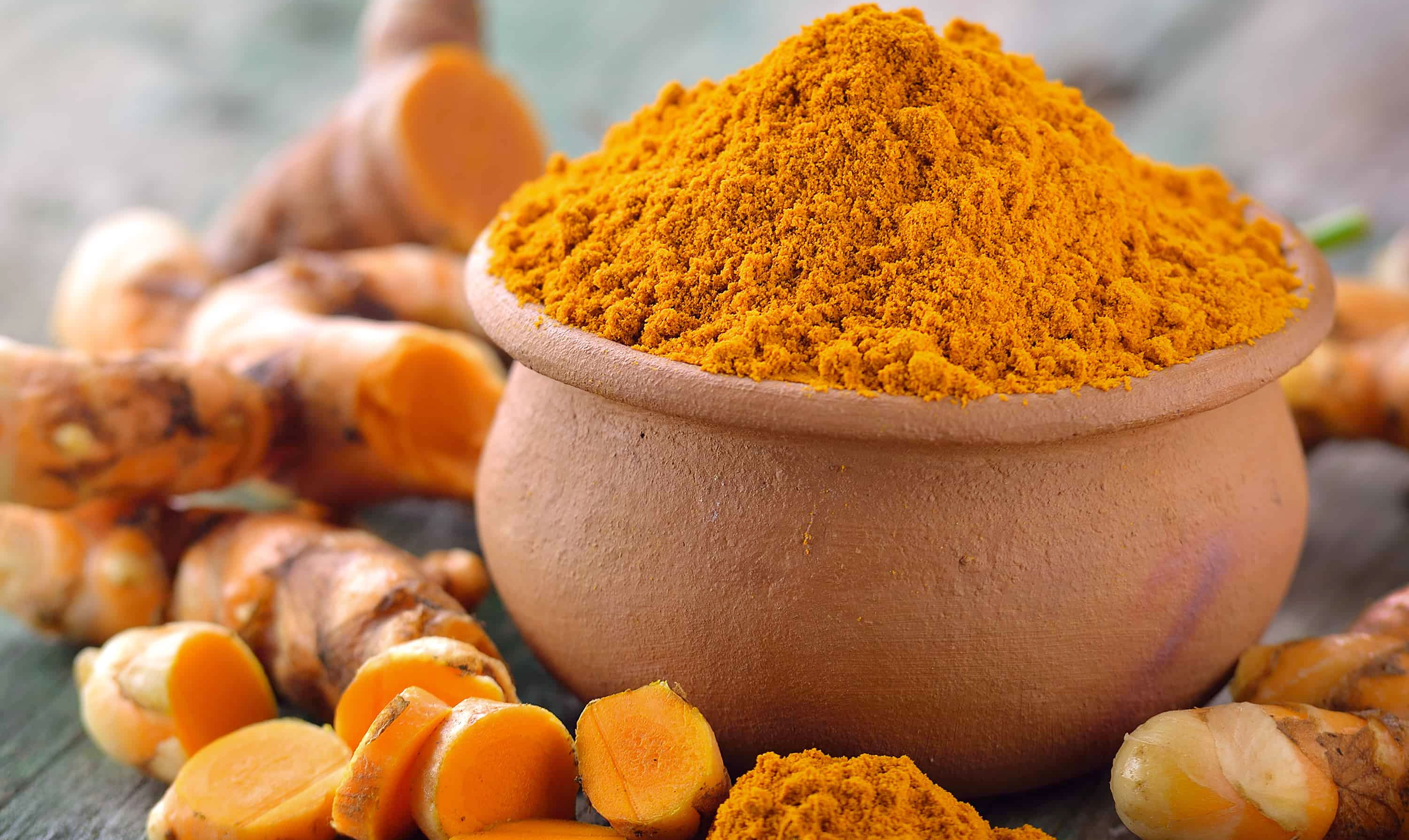Guía de la cúrcuma: beneficios, efectos secundarios, usos y más!
Cúrcuma: La hierba dorada
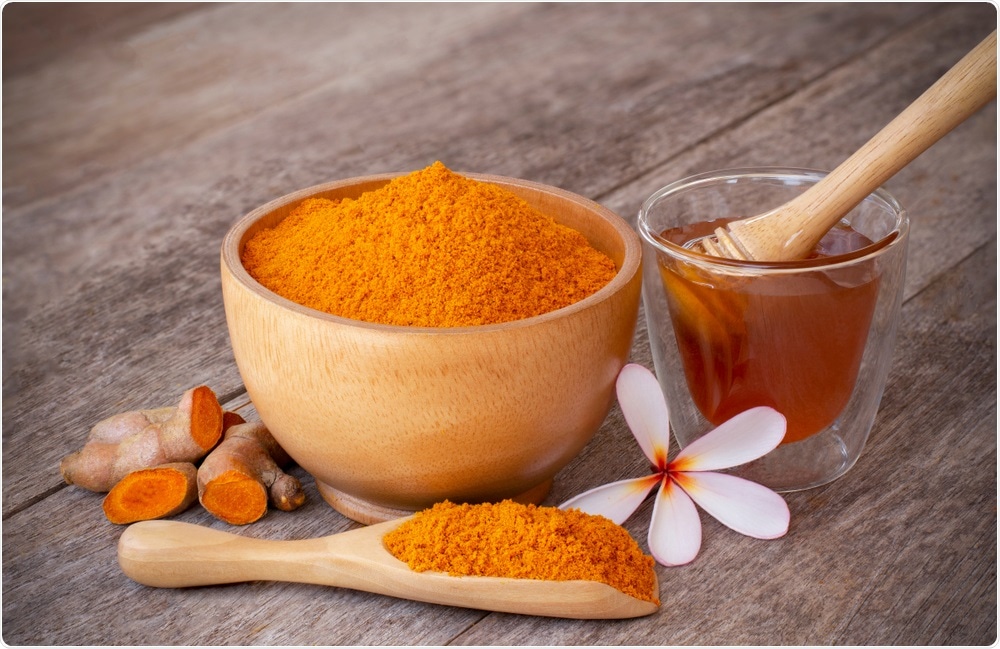
La cúrcuma es un alimento básico en las cocinas indias, ya sea para dar sabor a nuestro curry o vertido en leche hirviendo a fuego lento para aliviar la secreción nasal. Ya sea que se trate de la fiebre mareada, un brote de acné o un moretón de curación lenta, la cúrcuma siempre ha encontrado su camino en los remedios caseros de nuestra abuela.
La cúrcuma (Curcuma longa) es una planta herbácea perenne de la familia del jengibre. Es nativa de las regiones tropicales de alta precipitación del sur de Asia y se cultiva predominantemente en la India. La cúrcuma india es considerada la mejor del mundo por sus cualidades inherentes y alta biodisponibilidad de la curcumina. El polvo de cúrcuma de color dorado se obtiene moliendo el tallo subterráneo de la planta, un rizoma. El uso de la cúrcuma como ingrediente culinario se remonta a 2000 aC India védica.
Las propiedades curativas de la cúrcuma la convierten en una hierba increíble, utilizada en muchas formulaciones ayurvédicas. La cúrcuma se conoce como Haridra en sánscrito, que significa la que adorna a Hari o Lord Vishnu. Su color amarillo radiante es auspicioso e integral para varios rituales. Posee propiedades curativas multitudinarias y tiene propiedades antioxidantes y antiinflamatorias.
Esta especia amarilla vívida ha sido aclamada como un súper alimento. La curcumina, uno de los componentes activos más importantes de la cúrcuma, se ha investigado ampliamente debido a sus propiedades antiinflamatorias. Mejora la inmunidad y ayuda a mantener los niveles de azúcar en la sangre. Ayuda en la digestión saludable y aumenta su estado de ánimo.
Cúrcuma en Ayurveda

En Ayurveda, la cúrcuma se clasifica como Vayasthapana, o restaurador de la edad, y Ojo vardhana, o refuerzo de vitalidad. Equilibra Vata y Kapha dosha debido a su ushna o potencia caliente. Equilibra a Pitta debido a su amargura. Por lo tanto, equilibra los tres doshas. Apoya la salud de Rasa dhatu (plasma) y Rakta dhatu (sangre) y nutre el sistema circulatorio circulando sus beneficios para la salud en todo el cuerpo. Apoya Agni (metabolismo saludable) y por lo tanto mantiene una fuerza digestiva óptima.
Propiedades de la cúrcuma

La cúrcuma tiene muchas propiedades que la convierten en un ingrediente invaluable en muchas formulaciones ayurvédicas. Veamos algunas de las propiedades destacadas de la cúrcuma:
- Turmeric for pimples: Curcumin, the active principle of turmeric, has potent anti-microbial properties. Since ancient times, it has been a well-known and effective remedy for many skin issues.
- Turmeric for pain relief: Enriched with anti-inflammatory properties, turmeric is effective in joint issues.
- Antioxidant: Turmeric is a rich source of antioxidants, protecting the body from the adverse effects of free radicals.
- Turmeric for Diabetes: Turmeric possesses anti-diabetic properties, helping decrease blood sugar levels and may reduce the effects of diabetes complications.
- Turmeric for weight loss: Turmeric is a metabolism booster that reduces fat tissue growth.
Beneficios para la salud de la cúrcuma
Haridra (curcuma longa) o cúrcuma es el azafrán indio y la especia dorada. Los beneficios de Haridra han sido ampliamente discutidos en textos clásicos de Ayurveda. El hecho de que Haridra tenga 80 sinónimos es un testimonio de sus beneficios utilitarios identificados hace miles de años.
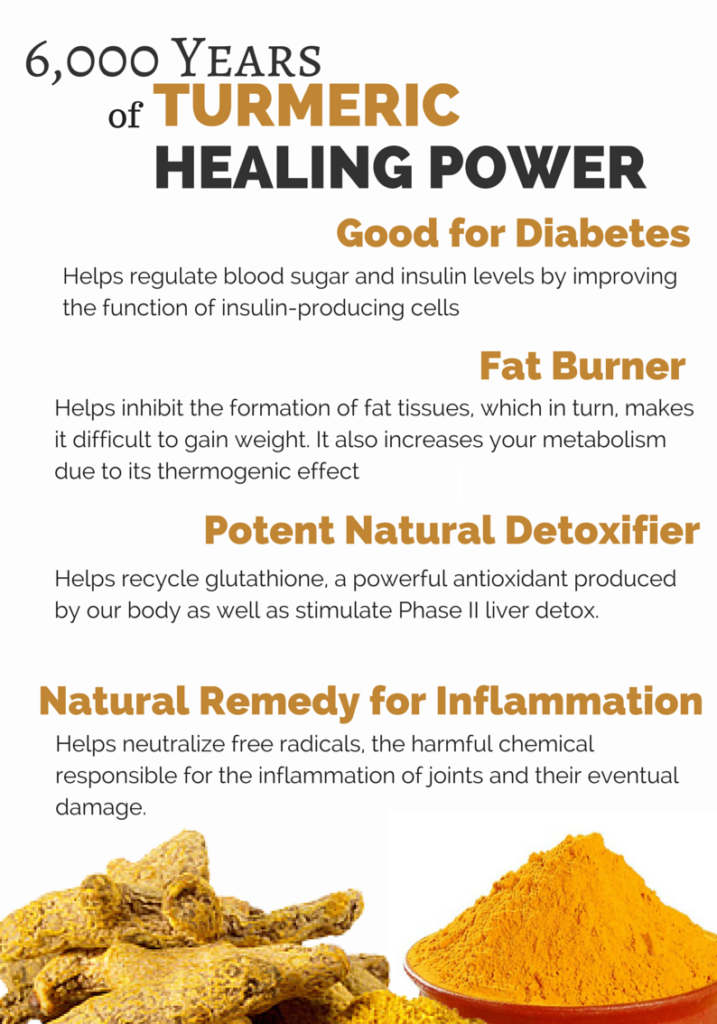
- Turmeric for immunity – Turmeric is known as an immunity booster herb. Curcumin, an active compound found in turmeric, has anti-inflammatory properties that can help fight colds, flu, and other microbial diseases. Turmeric milk, or Haldi doodh has traditionally been a healing remedy for colds and coughs.
- Turmeric for pimples – Turmeric has been linked to beauty therapies because of its skin healing properties. It has over 300 antioxidants that help brighten skin and prevent breakouts. A face pack of sandalwood, turmeric, and milk can effectively remove tan.
- Turmeric for wound healing – Turmeric has antiseptic properties that can promote quick wound healing. Topical application of turmeric over fresh or chronic wounds promotes faster wound healing. It also prevents and cures fungal infections.
- Turmeric for digestion – The antioxidant and anti-inflammatory property of turmeric boosts digestion and soothes the stomach lining. The Katu (pungent) taste escalates the Agni (digestive power) and facilitates the secretion of digestive juice.
- Turmeric for cholesterol – Turmeric improves your blood vessels’ function and keeps cholesterol in check. It helps improve circulation and reduces the triglyceride levels.
- Turmeric for pain relief and joint health– It improves the functioning of joints by easing joint pain and improving flexibility. It can help reduce the inflammation of joints, relieving swelling. Due to curcumin’s presence, turmeric helps relieve joint issues. It is inherently Vata-kapha pacifying in nature and has a soothing effect on the locomotor system. Ayurveda Acharya Vagbhata included turmeric in the Haridradi group, indicated for curing rheumatism. Contemporary studies have confirmed that curcumin, the key ingredient of turmeric, protects soft tissues, including cartilage.
- Turmeric for brain health – Curcumin boosts levels of the brain hormone BDNF. This hormone boosts the growth of new neurons and may help fight various brain degeneration. It is also said to improve memory and concentration and reduce anxiety.
- Turmeric for liver – Turmeric helps in detoxification and helps maintain liver health. Studies have confirmed that it may help heal nonalcoholic fatty liver. It helps reduce oxidative stress and assists in liver regeneration.
- Turmeric for diabetes – Turmeric helps reduce blood sugar and associated complications in type 2 diabetes. It also assists in healthy weight management. It improves fasting blood sugar levels and insulin resistance.
Cúrcuma Remedios caseros
Como la gente es muy consciente de muchos beneficios de la cúrcuma, ha sido ampliamente utilizado en remedios caseros. Veamos algunos usos bien conocidos de la cúrcuma:
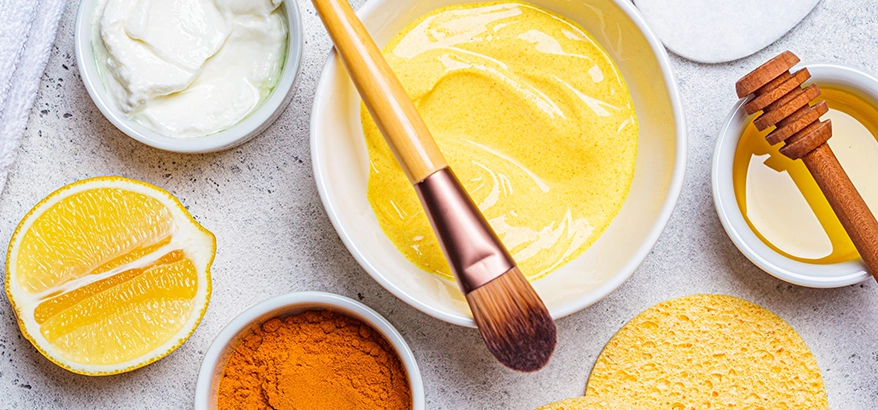
- Turmeric milk is a traditional, soothing drink, often called golden milk, used to soothe a sore throat and other inflammatory conditions. To prepare Turmeric milk, add ¼ teaspoon of turmeric and a pinch of black pepper powder into a glass of warm milk and drink. This turmeric milk is well known for treating colds and coughs. It is also suitable for promoting sleep. Adding pepper helps in better absorption of curcumin.
- Turmeric is used in many face packs. Because of its antimicrobial and healing properties. For oily skin, use of turmeric powder with lemon juice or multani mitti, and for dry skin, use it with milk as a face pack. Apply it for 10-15 minutes and wash with cold water. It helps clear pigmentation, acne, blemishes, and tan.
- For relieving a sore throat, mix one teaspoon honey with ½ teaspoon turmeric powder and consume 2-3 times a day.
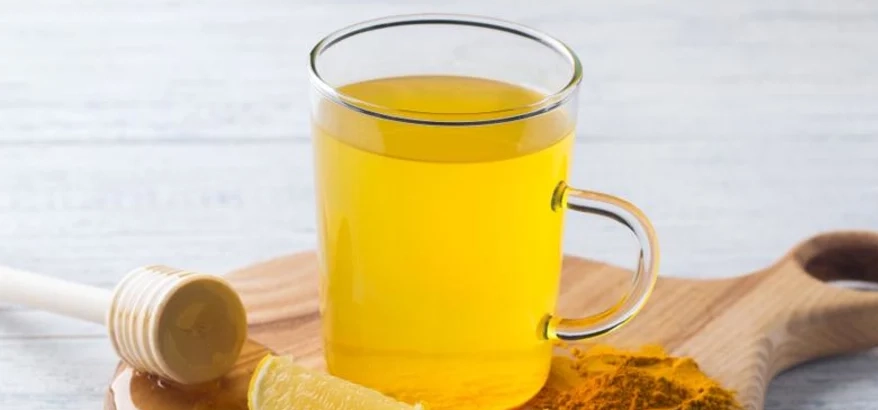
- Turmeric tea is a soothing and warm blend of herbs steeped slowly to detoxify your body. Boil 200 ml of water and add one inch of freshly grated turmeric or ½ teaspoon of turmeric powder. Strain and add one teaspoon of lemon juice and honey as required.
- Mix one tablespoon of amla juice with a pinch of turmeric and consume on an empty stomach to balance your blood sugar levels.
Efectos secundarios de la cúrcuma
La cúrcuma es segura para el consumo. Las cocinas indias usaban cúrcuma en la antigüedad. Sin embargo, uno debe conocer los posibles efectos secundarios de la cúrcuma al usarla como suplemento o tomarla en grandes cantidades.
- If taken in large quantities, turmeric might cause gastric irritation, diarrhea, or mild discomfort.
- Some commercially available turmeric powders with harmful colorants and fillers, such as rye might be adulterated. These can cause ill effects, so always consume turmeric from reliable sources.
- Turmeric has an anti-coagulant effect, so if you are on blood thinners like warfarin, it may lead to excessive bleeding.
- Turmeric might lead to drug interactions if you are on other medications. If you are on any other medication or have any health issues, it is better to consult your Doctor before taking any turmeric or curcumin supplement.
- Turmeric might stimulate contractions, so any turmeric or curcumin supplement should be avoided by pregnant women.
Puntos clave
- Turmeric is a herb with potent healing properties
- This golden spice has a particular affinity towards blood and promotes detoxification.
- Turmeric has immense health benefits that range from managing diabetes to improving heart health.
- It is essential to consume turmeric or curcumin supplement only from reliable sources to avoid possible side effects of adulterated turmeric.
- Adding a pinch of black pepper can help better to absorb curcumin, the active component of turmeric.
